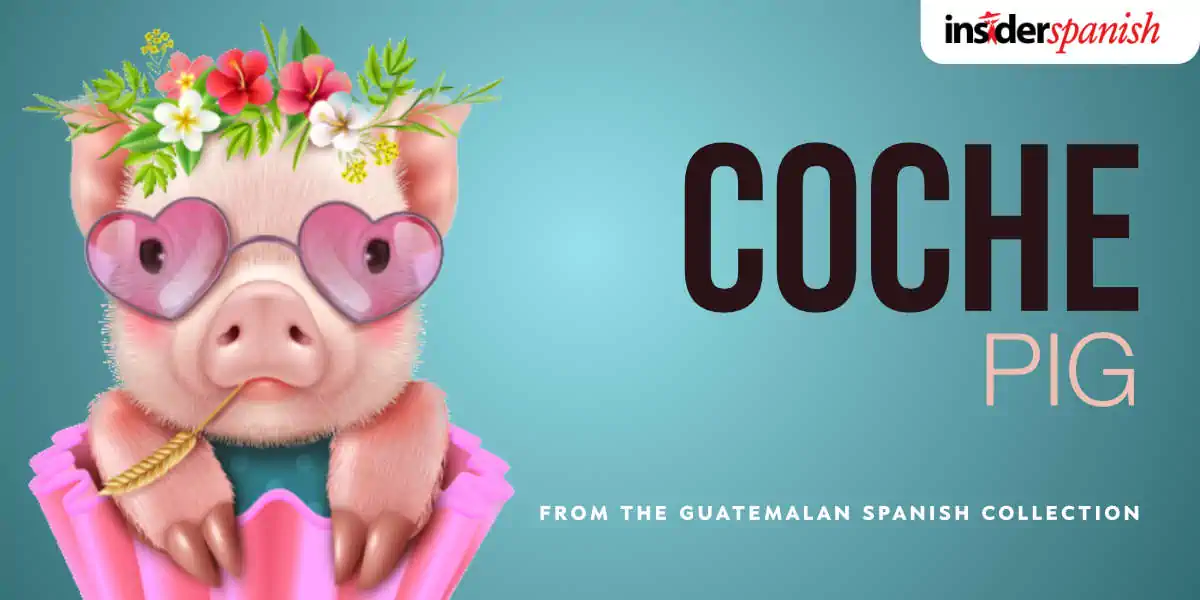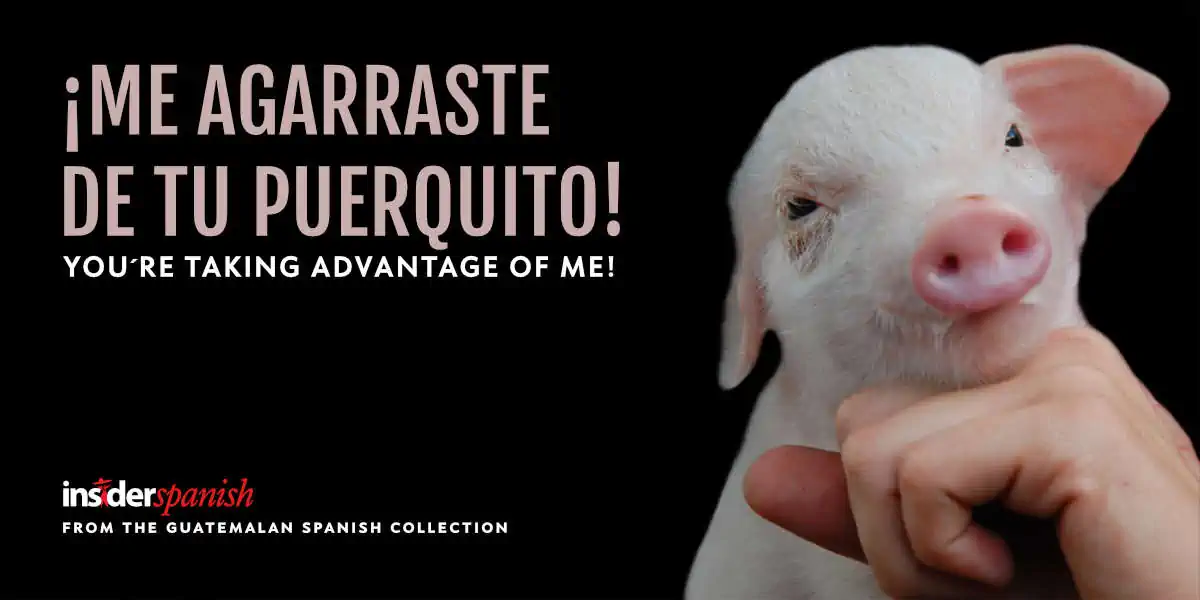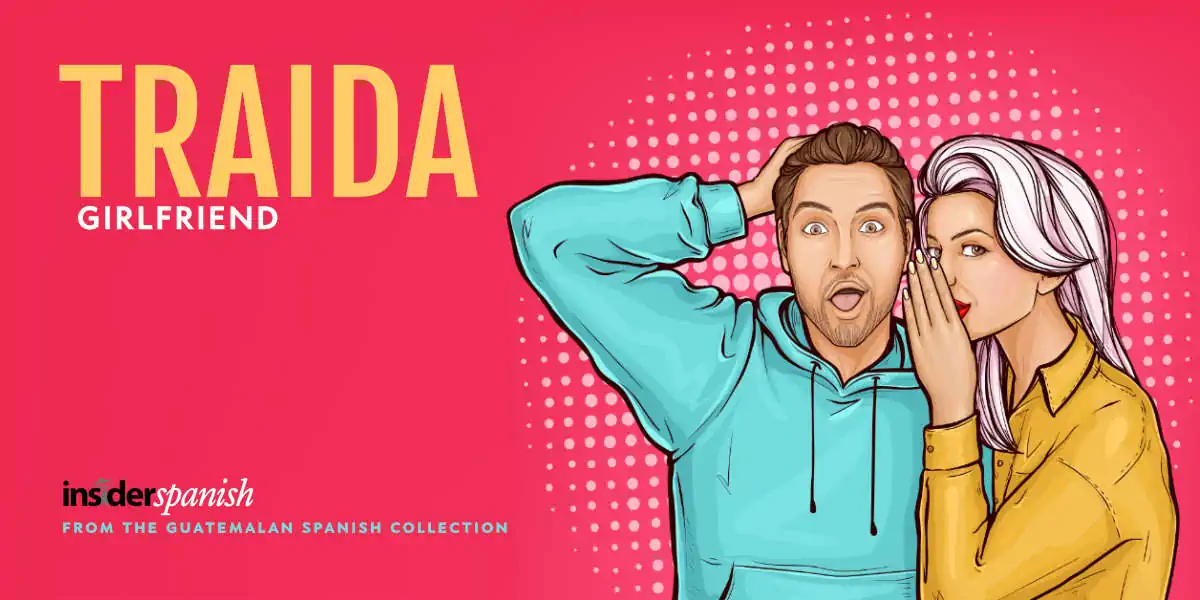20 Ways to Speak Guatemalan Spanish
What are some of the most common words, phrases, and sayings in Guatemalan Spanish?
Image by Mohamed Hassan from Pixabay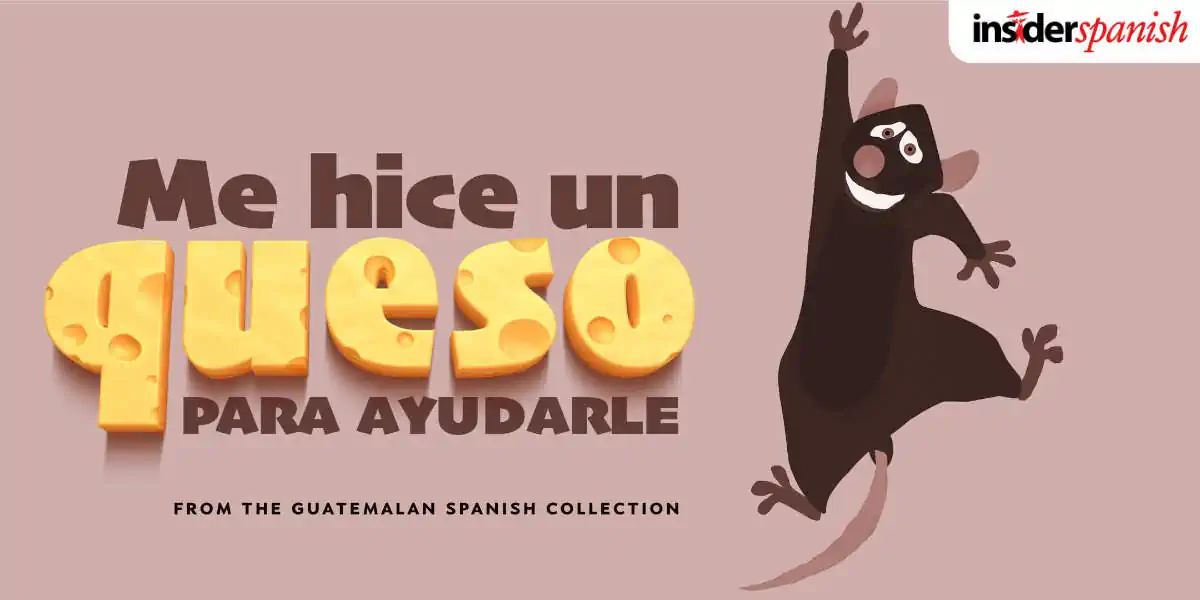
1. ¡Chish!
😧 Are you disgusted about something? Just say this. When a politician had the audacity to ask a poor street vendor for a discount on a very small item, the seller retorted:
⚽ ¡Chish! ¡Usted gana más que yo!
🏈 You disgust me! You make more money than I do!
This is the perfect thing to say to a child who is about to stick something filthy in his mouth.
2. ¡Qué de a sombrero!
When a person is upset, he may throw his hat down in disgust. This, then, is the protest when someone tries to take advantage of a situation. When some public bus drivers suggested that government subsidies be eliminated and passengers use prepaid cards instead of cash, one reader responded:
⚽ Me he dado cuenta que hay una buena cantidad de los buses parados, ya sea que estén tirados en talleres o simplemente, como no son horas pico de pasaje, los sacan de su ruta y así quieren el subsidio cabalito, ¡qué de a sombrero!.
🏈 I am aware that a good number of the buses aren’t running. Or during lower-revenue, non-peak hours they take them o the route. Even so, they want their complete subsidy! What nerve!
3. ¿Va’a?
Guatemalans, just like the majority of their Central American neighbors, tend to cut off the final consonants in informal speech. This is especially true with the word for true, verdad. In this case, not only is the final d lopped off, the intermediate erd morphs into an a. The two a’s are only separated by a micropause, represented by an apostrophe.
⚽ Está bien chilero, ¿va’a?
🏈 It’s really cool, right?
Listen carefully for this in everyday conversation, and repeat it again and again until it rolls off your tongue. You’ll be well on your way to speaking bona fide Guatemalan Spanish!
4. ¡Qué chilero!
🌶️ Guatemalans are not as given to hot, spicy foods as their Mexican neighbors. It is no surprise, then, that chilero usually has nothing to do with mouth-burning of any kind. Rather, here it takes on the meaning of nice, good, or beautiful, depending on the context.
⚽ ¡Qué chilera tu chumpa!
🏈 Boy, that’s a really beautiful jacket!
5. Dos que tres
Don’t be surprised if one day you ask a local how he’s doing and his response is: Dos que tres. Immediately you will mentally reach for your calculator and wonder what’s up with the numbers. But there is no math involved in this one. It merely means so, so. This construction also came from Mayan languages such as Cachiquel, Kekchi, and Quiche. In these languages dos que tres means some.
⚽ A: ¿Cómo está tu abuelito?
⚽ B: Dos que tres.
🏈 A: How’s your grandpa doing?
🏈 B: He’s getting by.
6. chumpa
Meet the local word for a jacket.
⚽ ¿Dónde compraste esa chumpa de cuero vos?
🏈 Where did you buy that leather jacket?
7. shute
👀 Ever heard of rubbernecking delays? That’s what happens when, because of perhaps a simple fender bender, the flow of traffic comes nearly to a halt, just so all the curious can get a gander at what happened. If you are a rubbernecker or a buttinsky, don’t be surprised if in Guatemala you are described as shute, which essentially means nosy, prying or snoopy, and not of the Charlie Brown variety! Originally, shute was used to designate a stinger, such as those used by bees and wasps to pierce our skin. The nosy person similarly sticks his nose in where it doesn’t belong and causes great figurative pain.
⚽ A nuestro vicepresidente le encanta recibir palo. Al menos esa es la lectura que yo le doy el querer sacar la cara para comunicar el aumento de salarios en un momento más impertinente que una suegra shute en la luna de miel.
🏈 Our vice president loves to get beat up. At least that’s what I read into the fact that he shows his face to communicate a salary increase at a moment more awkward than having a nosy mother-in-law along for the honeymoon.
Yikes!
8. muchá
This form of address is likely a shortened form of muchachos and means you guys, but it encompasses much more than that. Implicit is a sense of camaraderie and of belonging. If you have the opportunity to work with a group of Guatemalans, just get their attention with muchá, and then voice your request.
⚽ Muchá, ¿cuándo creen que terminaremos este proyecto?
🏈 Hey guys, when do you think we will finish this project?
9. echar un cuaje
😴 The verb cuajar means to coagulate, or to solidify. When we sleep, an observer may see that our body does something similar. We curl up as we find a comfortable position. Hence, when a local se echa un cuaje, it means he is taking a nap.
⚽ Voy a echarme un cuaje, mientras el bebé está durmiendo.
🏈 I’m going to take a nap while the baby sleeps.
10. echar los perros
🐕 Every hunter values his hounds. Their acute sense of smell makes them ideal companions on the hunt. But when a Guatemalan sicks his dogs on someone, he is on a different sort of hunt—one of love. This idiom means to date.
⚽ Camilo le está echando los perros a María.
🏈 Camilo is dating María.
Let’s all hope that Camilo isn’t barking up the wrong tree.
11. colgado como chorizo de tienda
💘 Falling in love can have a powerful effect on a person, almost like a drug. That being the case, in Guatemalan Spanish, a person in such a state is said to be colgado como chorizo en tienda. That literally means he is hanging like a sausage in the store. Sausages here are not usually hidden away in a cooler, but prominently on display in a store’s entrance. The idea? Onlookers can tell what is going on without explanations.
⚽ Ricardo, desde que conoció a Ruth, está colgado como chorizo en tienda.
🏈 Ricardo, ever since he met Ruth, has been head over heels in love.
The same idea can be shortened to está colgado.
12. ¿Cómo te quedó el ojo?
😜 This is classic trash talk, Guatemalan style. Imagine the scene: You are in a tight soccer game. Finally, you break through the defense and score the game-winning goal! To top things off, you say, ¿Cómo te quedó el ojo? to the goalie. It’s like boasting in English: Look who’s laughing now! Or perhaps: How do you like them apples?.
¿Cómo te quedó el ojo?.
Stick that in your pipe and smoke it.
Is it just me, or is it getting hot in here?
13. traida
While many a Spanish-speaker has gushed over his girlfriend, or novia, in Guatemala men strut down the street with their traida in hand. This archaic Spanish word for girlfriend never went out of style in Guatemala.
¿Y la traida? ¿No la trajiste?
And your girlfriend? Didn’t you bring her?
The masculine version is traido for boyfriend. Another local word for girlfriend is güiza, sometimes spelled wisa.
14. hacerse un queso
🧀 Making cheese isn’t easy. And making yourself into a cheese can be far more difficult. For that reason, if someone says, Me hice un queso, it means he went out of his way to please. One writer complained that the service at one hotel was so bad he had to get up and pick up the plates himself. He relates:
⚽ Cuando el [jefe de los meseros] cayó en la cuenta de su descuido, se hizo un queso para sacar el clavo.
🏈 When the head waiter realized the lack of attention, he bent over backwards to make things right.
15. culebra
🐍 In the Garden of Eden, it was the snake that approached Eve, pretending to be her friend—albeit with ulterior motives. In the same way today every school and every company has its bootlickers. For that reason, if a Guatemalan calls someone a culebra, he is probably just buttering someone up to get his way.
⚽ Manuel, ¡no seas culebra!
🏈 Manuel, don’t be such a minion!
Another similar term is arrastrado.
16. ¡Me agarraste de tu puerquito!
🐷 Pity the poor pig. He is fattened, slaughtered, and taken to market, where every part of his body will be quartered and sold. Therefore, if someone says that you are taking him as his little piggie, back off! It means that the person feels you are taking advantage of him.
⚽ Cuando le pedí a Antonio que me hiciera un favor más, enojado me dijo: ‘¡Qué! ¿ya me agarraste de tu puerquito?’.
🏈 When I asked Antonio to do me one more favor, he responded angrily: ‘What! Am I your slave now?’
Another similar —but far less common— expression in the eastern part of the country is Me agarraste de tu arce.
17. tener cuello
🦒 Government red tape is enough to drive anyone crazy. In Guatemala, getting government permits can be especially time-consuming. And that’s where your connections come in. Sometimes it’s all about whom you know, or as Guatemalans would say, tener cuello, literally “having neck.” This idiomatic expression means to have pull or influence.
⚽ ¿A quién vamos a mandar a la Alcaldía para sacar el permiso? Mejor mandemos a Enrique. Es el único que tiene cuello.
🏈 Who are we going to send to City Hall to get the permit? Let’s send Enrique. He’s the only one with pull.
18. poporopo
🍿 Meet the local word for popcorn. The generic term for this in Latin America is palomitas de maíz. But the Guatemalan term is far more colorful. Very likely it is an example of onomatopoeia, that is, a word that mimics the sounds associated with the word itself.
⚽ Hijo, si te portás bien, te compro unos poporopos esta noche en el cine.
🏈 Son, if you behave, I’ll buy you some popcorn tonight at the movies.
Caramelized and rolled into a ball, it’s called alboroto.
19. papa pelada
🥔 Ever peel a stack of potatoes? Your hands and back will be aching. That’s why these days few are willing to do it. They prefer to have everything handed to them on a plate. In Guatemalan Spanish, they prefer to get their potatoes peeled. It’s but a metaphor for a life of ease.
⚽ Mucha gente quiere la papa pelada y que otro siembre para cosechar nosotros.
🏈 Many people want everything handed to them on a plate. Let others sow so that we can reap.
20. alagartado
🦎 Ever watch lizards eat? They perch themselves motionless in a spot where they know creatures lower on the food chain will be passing by. Then, when a tasty specimen is in reach, their extremely long tongues rocket out and nab the unsuspecting victim. Due in no small part to their lightning-fast eating habits, if someone is said to be alagartado, it means he or she is a voracious eater.
BONUS: Guatemalan Spanish Infographic
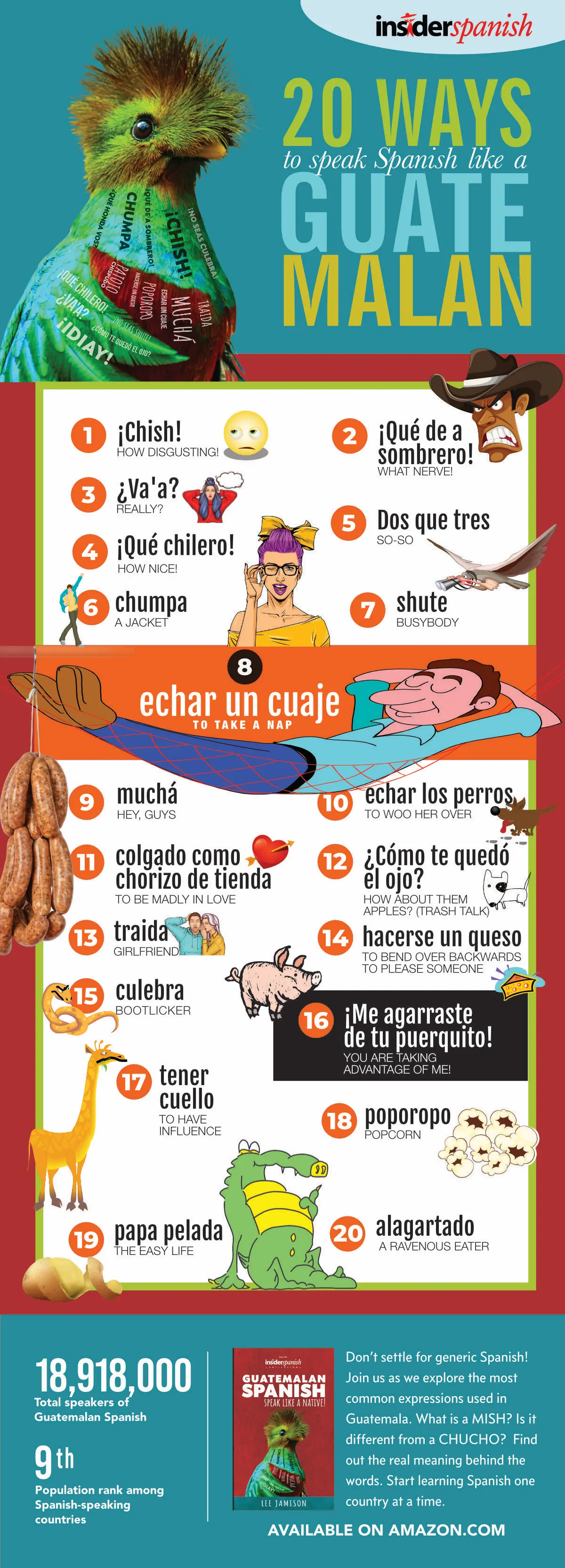
#Ad
Get the Ultimate Guide to
Guatemalan Spanish!
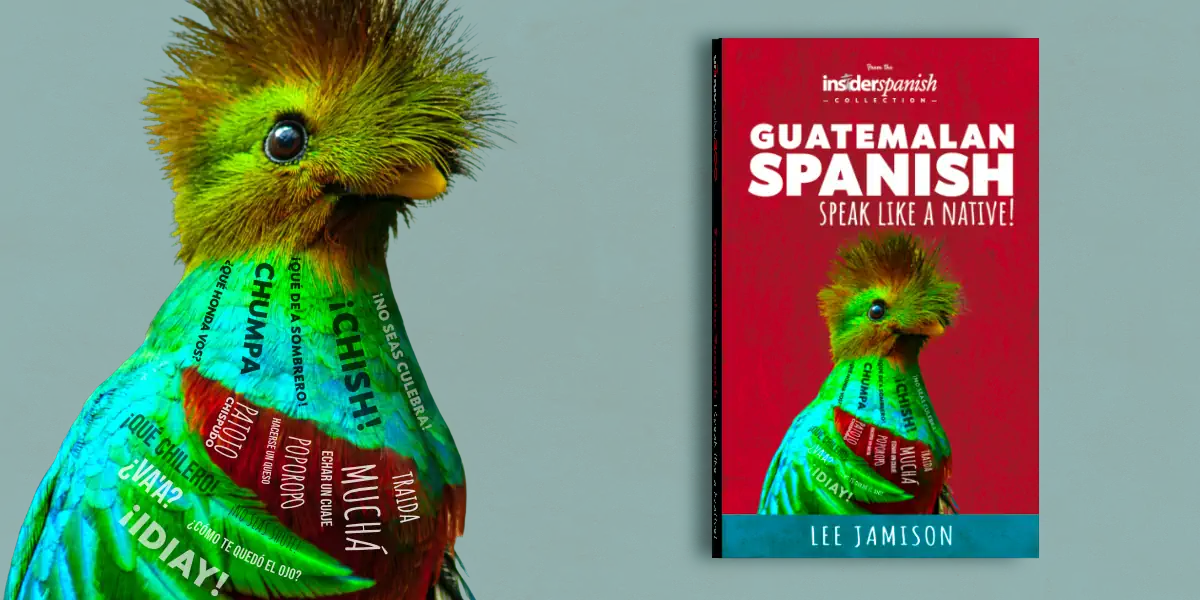
DON'T SETTLE for generic Spanish! Put away the stale phrasebooks and learn to speak just like the natives! Join us as we explore the most common expressions in Costa Rica. Join us as we explore the most common expressions used in the “Land of Eternal Spring.” What is a MISH? Is it different from a CHUCHO? What if you ask someone how he's doing and the response is “DOS QUE TRES.” Why the numbers? Find out the real meaning behind the words. You'll save money at the market and even make new friends. We don't teach you Spanish; we teach you how to make your Spanish more Guatemalan. The Insider Spanish series of books have sold thousands of copies the world over. Our guidebooks are not meant to teach you basic Spanish, but rather to tailor your Spanish to the spoken idiosyncrasies of each Spanish-speaking country. Get your copy today! Available in print and Kindle versions.

